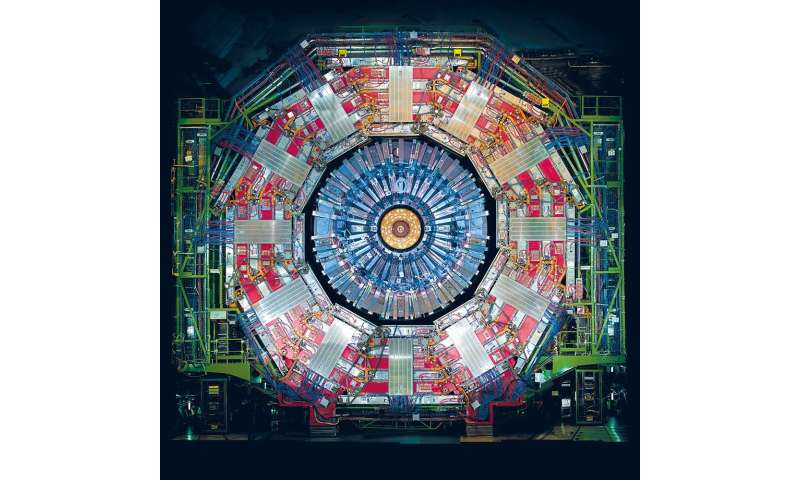Several millions for elementary particle research at KIT

Experimental research into the fundamental building blocks of nature and the technologies required for this purpose by Karlsruhe Institute of Technology (KIT) will be funded with a total of EUR 7.6 million by the Federal Ministry of Education and Research (BMBF) from 2019 to 2021. With these funds, scientists will be able to push research within the international large-scale experiments at CERN, Geneva, Switzerland or KEK, Tsukuba, Japan.
Elementary particle physics is aimed at studying the fundamental building blocks of nature and their interactions to draw conclusions with respect to the mechanisms of the big bang. In the area of elementary particle physics, BMBF has now decided to fund participation of German universities in the large-scale experiments at the European laboratory CERN near Geneva or at the High-energy Accelerator Research Organization KEK in Tsukuba north of Tokyo.
Researchers of KIT's Institute of Experimental Particle Physics (ETP) have now been granted new funding for their contributions to the experiments CMS (Compact Muon Solenoid) at CERN and Belle II at KEK. In addition, BMBF approved funding for the upgrade of the CMS experiment and development of new methods to handle the large data volumes of the experiments. Total funding amounts to approx. EUR 7.6 million in the next two and a half years.
CMS—Detector at the World's Largest Particle Accelerator
The CMS experiment is one of four big experiments at the Large Hadron Collider (LHC) of CERN. Since the beginning of planning and construction of the experiment, ETP has been involved with a team of about 90 persons. This is the biggest university group conducting research at CERN. Major components of the detector, in particular those based on silicon technology, were manufactured at the laboratories of KIT. Moreover, KIT developed algorithms to analyze the large data volumes. The highlight of research at CERN so far has been the discovery of the Higgs boson in 2012. The CMS group from Karlsruhe contributed largely to this success.
The CMS Upgrade Program
Preparations for the future CMS experiment as of 2026 already are in full swing. Researchers of KIT are building highly precise silicon particle detectors, by means of which conclusions can be drawn with respect to the trajectories of elementary particles inside the CMS experiment. "This project will combine physical fundamental research with technology development, often at the limit of what is technically feasible," says Project Head Professor Ulrich Husemann.
Belle II—Kollisionen im japanischen Superbeschleuniger
Preparations for the future CMS experiment as of 2026 already are in full swing. Researchers of KIT are building highly precise silicon particle detectors, by means of which conclusions can be drawn with respect to the trajectories of elementary particles inside the CMS experiment. "This project will combine physical fundamental research with technology development, often at the limit of what is technically feasible," says Project Head Professor Ulrich Husemann.
"In the past years, we found strong evidence of electrons and their "cousins," the myons and tauons, having a behavior other than we expected," says Project Head Professor Florian Bernlochner. By late 2021, the Belle II experiment will have recorded sufficient data to get to the bottom of this mystery.
Pilot-ErUM-Data—Efficient Infrastructures and Machine Learning
The Pilot-ErUm-Data joint project contributes to the digital agenda of the Federal Government. Within this project, scientists of KIT and other universities conducting research in the areas of astroparticle physics, hadron physics, nuclear physics, and particle physics work on the development of more efficient computing infrastructures, improved data evaluation using machine learning methods, and more efficient algorithms for data evaluation and simulation. "The challenges associated with the big data volumes of our experiments will require new, more efficient computing concepts," says Project Head Professor Günter Quast.
"Research is carried out worldwide and the members of our team come from all around the world. The new funds will help us continue to fulfill our role in society and to not only develop new technologies for the search for fundamental building blocks of nature, but mainly to qualify young researchers in high technologies and international collaboration," underscores the Head of ETP, Professor Thomas Müller, who also coordinates the ongoing CMS activities.
Provided by Karlsruhe Institute of Technology